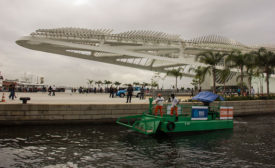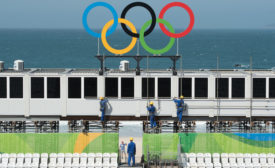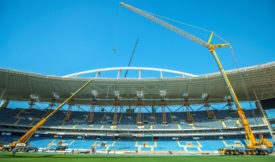Home » Keywords: » Rio 2016 Olympics
Items Tagged with 'Rio 2016 Olympics'
ARTICLES
Stadiums and Arenas
Sports infrastructure crumbles less than a year after Olympic Games end
Read More
Water Quality
Lack of Wastewater Treatment Puts Black Eye on Rio Olympics
Challenges in Brazil—including connections to sewer lines—has made progress difficult
Read More
Risk Management
How Does the Rio Olympics Construction Measure Up?
Despite fanfare, Olympic Games are still costly and challenging engineering projects
Read More
Public Works
Brazil's Woes Take Toll on Rio Olympics Construction
Preparing for the games and for the eyes of the world amid numerous controversies.
Read More
The latest news and information
#1 Source for Construction News, Data, Rankings, Analysis, and Commentary
JOIN ENR UNLIMITEDCopyright ©2025. All Rights Reserved BNP Media.
Design, CMS, Hosting & Web Development :: ePublishing










